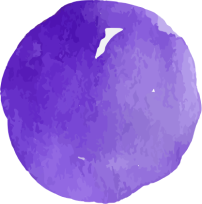Coumont, V., 2001. Le CAT a Paris. Reformulation, ACAT News Autumn, p.x.
At the invitation of the French Association for the Study of Personality Disorders, Dr. Anthony Ryle and Val Coumont Graubart made a joint (and bi-lingual) presentation of CAT at the Hôpital Ste-Anne, Paris, on October 6th, 2000, with a view to setting up the first training in France next year. It was a lively, interactive day with about 40 participants, mainly from the public sector, who had first become aware of the model when a member of the Association, psychiatrist Dr. Thierry Leonard, spent 6 months on placement in the Eating Disorder Unit of the Maudesley.
Translating the Psychotherapy File (a usable draft now exists in French) gave me a lived experience of the way in which language conceptualises and frames experience. Many of the procedures, perfectly acceptable in English, didn't really have the ring of authentic French about them. Did I translate 'we' as 'nous' or as the ubiquitous 'on' ('one')? To us, the latter sounds like Private Eye spoofing the Prince of Wales; to a French ear 'nous' might seem oddly chatty, rather as if (in English) the file read 'You know how you often feel as if the only way to get liked is if you do what other people want, right?' I tried 'on' for a while but couldn't stand the cool detachment, so opted for 'nous'. Would 'vous' be a possibility? After all, in those Marie-Claire quizzes about' Are you a good lover', etc., the statements you have to tick are usually 'vous' statements. While on this tack, my experience of French society is that it tends to make a bigger division between formal and informal communication than we do. Being addressed as 'Madame Coumont' and 'vous' makes my egalitarian principles cringe, but to my French colleagues, calling me Val and 'tu' might feel wince-makingly 'soixante-huitarde'. And what will the therapists call themselves and call their patients (for example in the reformulation letter)? All this is not linguistic nit-picking; it has powerful implications of status in the ways in which we relate.
It was not possible to find exact equivalents for some key words -for example, the dictionary gives 'bravache' for 'bully', but my French colleagues told me this was incorrect, and indeed in forty-odd years of speaking the language I've never once heard it used. We eventually came up with 'tourmenteur', though I think that in English 'tormentor' is a bit more deliberate and systematic than 'bully'. There doesn't seem to be a word for 'snag' (in fact I hope to be the first importer of 'le snag'), so I had to use the rather cumbersome 'obstacle cache'.
While working on the File I had the interesting experience of going to see Yasmina Reza's , ‘Art' without being aware that it was a French play set in France. I felt oddly nonplussed by the characters -I couldn't quite locate them socially or ideologically. When the penny dropped that we were in France things clicked into focus. This sets me wondering what I shall discover about French mind-sets, in the formation of which both Cartesian rationalism (all French school children study philosophy) and Roman Catholicism (religious satire packs more of a punch than it ever could in England) are important influences. What are the implications of all this for reciprocal roles, traps, dilemmas and snags? If I supervise French therapists working with French patients, will it feel the same, or will I have to re-orientate myself! I feel at the beginning of a fascinating chapter. Watch this space!


